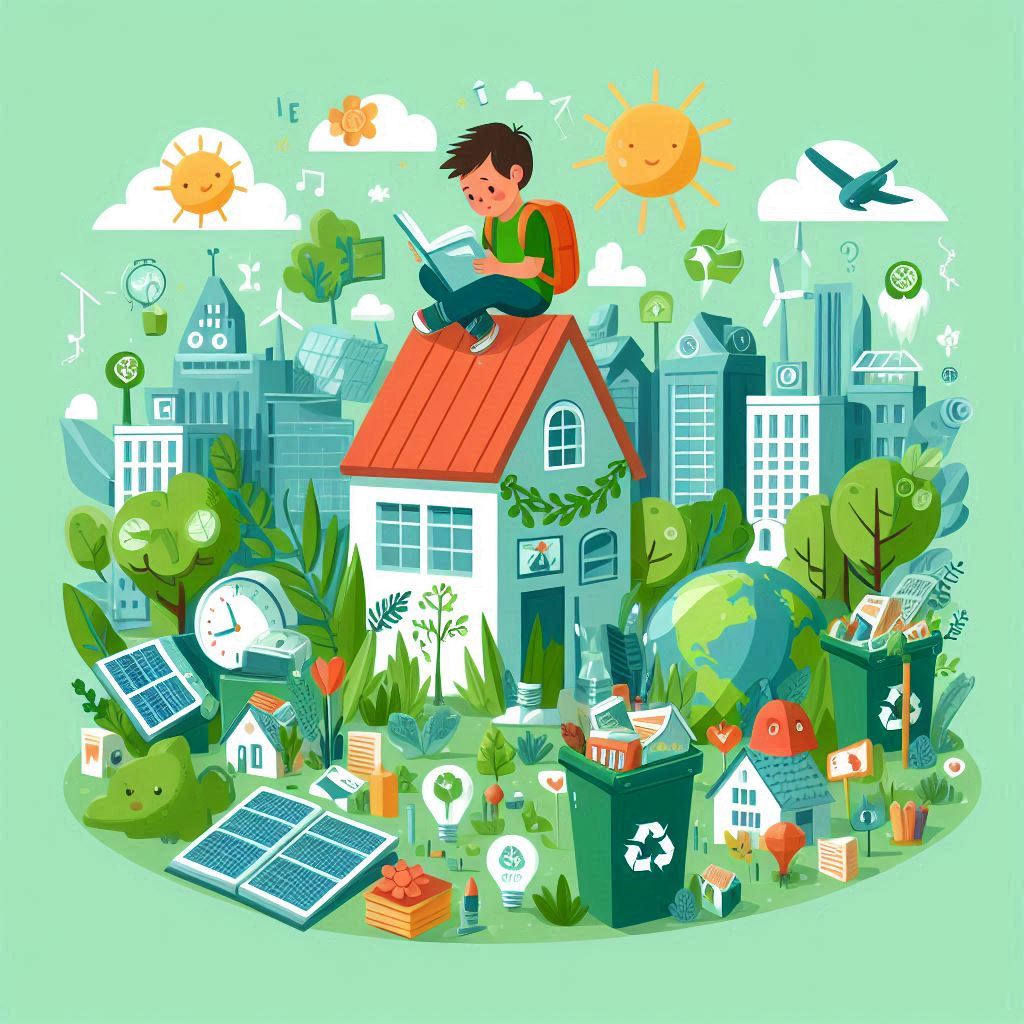As we witness the ongoing conversations about climate change and the impact of human activities on our planet, it’s only natural for us to want to instill a sense of environmental responsibility in our children. Raising eco-conscious kids is more than just a trendy topic – it’s about nurturing a generation that will prioritize sustainability and care for our planet.
Make Learning Fun and Engaging

One of the first steps to raising eco-conscious kids is through sustainability education. Introducing the concept of environmental responsibility at an early age can foster an awareness that lasts a lifetime.
Take your kids on regular nature walks. Point out different plants, animals, and ecosystems, explaining how they all interact with one another. This hands-on approach can cement an understanding of nature’s delicate balance.
Incorporate educational games and apps that focus on the environment. Many interactive games teach kids about recycling, conservation, and other sustainability practices in an entertaining way.
Read books and tell stories that emphasize environmental themes. Engaging stories can impart important lessons about sustainability without feeling like a lecture, making the concept of planet stewardship relatable through characters and scenarios.
Model Sustainable Practices
Children often learn by observing their parents. Demonstrating environmental responsibility in your own actions can be a powerful teaching tool.
Normalize the practice of reducing waste, reusing items, and recycling. Explain the process and why it’s important. Show them how to sort recyclables and encourage them to think before discarding items.
Teach your children about the importance of conserving water. Simple habits like turning off the tap while brushing teeth, taking shorter showers, or using a watering can for plants can go a long way.
Make energy conservation a family affair. Switch off lights and unplug devices when not in use, and explain how these actions help protect the planet. Involve them in discussions about energy-saving appliances or renewable energy options for your home.
Sustainable Lifestyle Choices
Incorporating sustainability into daily life helps children understand that environmental responsibility is part of everyday decisions.
Encourage walking, biking, or using public transportation when possible. If you drive, consider carpooling or investing in an electric or hybrid vehicle. Discuss the impact of fossil fuels on the environment and how these modes of transportation can reduce carbon footprints.
Teach your children about the importance of sustainable food practices. This includes buying locally sourced produce, growing your vegetables, participating in community-supported agriculture (CSA), and understanding food waste.
Before purchasing new items, talk to your kids about the importance of buying quality over quantity, choosing eco-friendly products, and the impact of overconsumption. Engage them in activities like crafting or DIY projects to repurpose old items.
Community Involvement
Community involvement can amplify the lessons learned at home, reinforcing the importance of sustainability and collective action.
Participate in local clean-up events, for example, beach, park, or neighborhood. These activities show kids the impact of community efforts.
Join or establish an environmental club or group. Encourage your children to take active roles, whether they’re initiating recycling programs at school, organizing tree-planting events, or conducting awareness campaigns.
Attend workshops or events focused on sustainability. Here, children can learn from experts about the latest in sustainability practices and innovations, inspiring them with ideas they can bring back to their daily lives.
Creativity and Innovation
Empowering eco-conscious kids involves fostering creativity and critical thinking. Challenge them to think of solutions to environmental problems and ways to implement them.
Conduct simple experiments at home that demonstrate principles of sustainability, such as how composting works or the process of water filtration.
Encourage DIY and upcycling projects. Whether it’s creating a bird feeder from a milk jug or fashioning a tote bag from an old T-shirt, these activities can teach resourcefulness and reduce waste.
Set up mini challenges that encourage innovation. For instance, ask them to design a new eco-friendly product or come up with ways to reduce energy consumption in the house. These activities can hone their problem-solving skills while keeping them engaged.
Nurture Curiosity and Understanding
Maintaining open communication about environmental issues can deepen understanding and nurture a genuine interest in sustainability.
Children are naturally curious. Take the time to answer their questions about the environment, even complex ones. This shows that their concerns are valid and worth addressing.
Keep them informed about environmental news. Discuss topics such as climate change, deforestation, or plastic pollution, and talk about the impacts and possible solutions.
Encourage your children to conduct their research on environmental topics. This could involve reading books, watching documentaries, or browsing kid-friendly websites that focus on sustainability.
Positive Reinforcement for Green Practices
Positive reinforcement can strengthen sustainable behaviors. Recognize and reward your children’s efforts to practice and promote sustainability.
Incorporate environmental tasks into their chore charts. Tasks could include watering the garden with rainwater, sorting recyclables, or participating in local clean-up efforts. Acknowledge their contributions, perhaps with a reward system that celebrates their achievements.
Create ‘Eco-Awards’ for your children to recognize their efforts. This could be as simple as a certificate for and naming them an ‘Eco-Hero of the Month’ for their exceptional commitment to sustainability practices.
Building a Sustainable Future
By adopting these strategies, you’re empowering your children to become responsible stewards of the planet. Sustainability education, community involvement, creativity, and open communication are all essential in nurturing eco-conscious kids who value environmental responsibility.
As parents, our role in guiding and fostering a sustainable mindset in our children is crucial. By leading by example and creating an environment that celebrates and practices green living for families, we set the foundation for a brighter and more sustainable future.
The journey toward sustainability is ongoing, but each step we take with our children brings us closer to a world where the care for our planet is second nature. Start today, and watch as your child grows into a guardian of the earth, ready to tackle environmental challenges with passion and innovation.
Additional Resources
For those eager to dive deeper into promoting sustainability with their families, here are a few additional resources:
- National Geographic Kids – Offers articles, games, and videos about nature, animals, and the environment.
- Earth Rangers – An educational platform for kids focused on environmental protection, offering various activities and missions.
- Green Schoolyard America – Provides ideas for turning schoolyards into sustainable, green spaces.
- Family Nature Club – Encourages families to explore nature together through group activities and trips.

